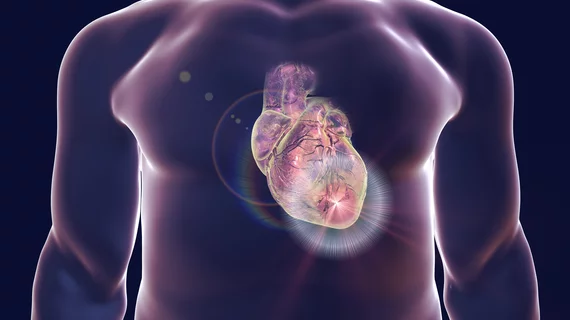FDA grants special recognition to AI software used to diagnose rare form of hypertension
The FDA has granted a breakthrough device designation for an artificial intelligence (AI) pattern recognition software being developed by Bayer and Merck & Co. in New Jersey that can identify signs of chronic thromboembolic pulmonary hypertension (CTEPH)—a rare form of hypertension—in CT pulmonary angiography (CTPA) scans, according to a Dec. 3 press release from Bayer.
CTEPH affects an estimated five individuals per million per year globally and can be difficult to diagnose because its symptoms mirror those of other lung diseases. Coupled with a lack of clinical awareness and other complex findings involving the heart and lungs, the AI software could help radiologists identify the condition on CTPA scans more clearly.
The CTEPH Pattern Recognition AI Software uses deep learning technology and processes image findings of cardiovascular, lung perfusion and pulmonary vessel analyses in combination with a patient’s history of pulmonary embolism, according to the release.
When finished, the companies hope to deploy the software into Bayer’s informatics technology platform Radimetrics™, which integrates contrast medium, injector and scan information.
The FDA Breakthrough Device Program is intended to help patients have more timely access to devices and breakthrough technologies that provide for more effective treatment or diagnosis for diseases by speeding up their development, assessment and review, according to the release. In December 2016, the program was added to the Food, Drug, and Cosmetic Act through section 3051 of the 21st Century Cures Act.
“While the FDA Breakthrough Device Designation is expected to expedite the software’s assessment and review, its development remains complex given the nature of the disease and technology,” according to the release.

